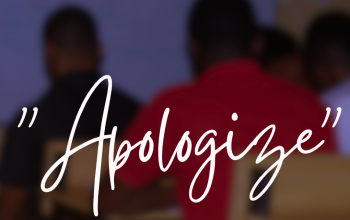Lessons from the Prodigal son story

For a few weeks now this parable has gotten my undivided attention, not just for the reason behind which the narrator uses it, but for the story in itself. Turns out we all at one point in our lives have been like the main character in this story, are still like him or are waiting for someone like him to come back home.
‘And he said, A certain man had two sons. And the younger of them said to his father,’ Father, give me the portion of goods that falleth to me’. And he divided unto them his living. And not many days after the younger son gathered all together, and took his journey into a far country, and there wasted his substance with riotous living and when he had spent all, there arose a mighty famine in that land; and he began to be in want. And he went and joined himself to a citizen of that country, and he sent him into his fields to feed swine. And he would fain have filled his belly with the husks that the swine did eat: and no man gave unto him. And when he came to himself, he said, How many hired servants of my father have bread enough and to spare, and I perish with hunger! I will arise and go to my father, and will say unto him, ’father, I have sinned against heaven, and before thee, and am no more worthy to be called thy son, make me as one of thy hired servants’ and he arose, and came to his father. But when he was yet a great way off, his father saw him, and had compassion, and ran, and fell on his neck, and kissed him and the son said unto him, Father, I have sinned against heaven, and in thy sight, and am no more worthy to be called thy son. But the father said to his servants, Bring forth the best robe, and put it on him; and put a ring on his hand, and shoes on his feet, and bring hither the fatted calf, and kill it; and let us eat, and be merry: For this my son was dead, and is alive again; he was lost, and is found. And they began to be merry. Now his elder son was in the field: and as he came and drew nigh to the house, he heard music and dancing and he called one of the servants, and asked what these things meant. And he said unto him, Thy brother is come; and thy father hath killed the fatted calf, because he hath received him safe and sound and he was angry, and would not go in: therefore came his father out, and entreated him and he answering said to his father, Lo, these many years do I serve thee, neither transgressed I at any time thy commandment: and yet thou never gavest me a kid, that I might make merry with my friends.’
I know it’s a familiar story, especially for those with a Christian background like myself. It’s a parable Jesus Christ used to paint a picture of our heavenly father’s willingness for us to come back home to his Forgiving and warm embrace. Disclaimer: this blog post doesn’t import the interpretation given by the narrator, so for the record, the father of the main Character isn’t God.

It’s not wrong to leave your father’s house: Throughout scripture, we see the likes of Abraham, Isaac, Jacob, etc leave their father’s house at different times under different circumstances and for different reasons. Every father (good ones I mean) hopes his son grows up to the fullness of his potential, the peak of his prowess, surpassing his father’s successes, and every good child aspires to do this. Many times for this to happen, it becomes necessary to move out from under the ‘roof’, supervision and ‘total control’ of the parent(s). Although the circumstances that led to the younger son asking for his share of the inheritance weren’t clearly stated by our narrator, and unlike Isaac and Jacob he left without being blessed by his father, we can only fault the intention, timing behind his leaving and not ‘leaving in itself’.
Even when emotions are in the car, Let reason drive. Keep emotions in the back seat: Jealousy, envy, discontentment, greed, etc. Our main character finds himself making such an important decision based on at least one if not all of these emotions, paying no attention to reason, wisdom or even common sense. Emotion(s) will always be there but letting them make decisions for us would more often than not put us in trouble we didn’t see coming.
Being a Youth has nothing to do with foolishness and disrespect: We see our main character exhibit abject disregard for the laws of the land and disrespect for his father by requesting that that which is due him upon his father’s demise be given to him now (For reasons i’ll talk about in a sequel to this post where we’ll look into possible reasons why his father might have granted his request) That notwithstanding his action was disrespectful and lacking wisdom.
Don’t jump the gun: Glaring from this story is the fact that our main character, the younger son showed a great degree of financial irresponsibility in managing his share of his father’s estate. Peer influence isn’t assumed as our story doesn’t really suggest he had (bad) friends. A few things could have led to this, such as;
His lack of interest in matters pertaining to the running of his father’s estate (and even his own estate as we would get to realize at the end of the story),
Laziness as a result of having a diligent and hardworking elder brother,
Or Maybe he just felt he was done with this ‘class’ and wanted to move to another trying to prove a point to those who (as we find out at the end of the story) don’t really care or aren’t even watching hence ‘graduating’ without finishing the course of study,
Or even Jealousy and envy.
In whichever parlance we may put it, bottom-line is he moved too fast, Patience is golden.
Make good use of what’s yours, Its just enough: I can’t help but imagine that the younger son asking for his estate under such circumstances has something to do with feelings of jealousy towards his elder brother who was the heir apparent to the estate of the father, and by Jewish custom he is entitled to two-thirds of his father’s estate upon his death while our main character is entitled to ‘just’ a third, or so he thought, and it’s natural for one to feel jealous under such circumstances as these. What he failed to realize is that what is ours is ours. That someone has an advantage doesn’t necessarily mean it’s our disadvantage, working with what we have to the best of our ability would take us to the Zenith.
Acquire money skills: It’s one thing to have money, it’s another to keep money and yet another for the money in your possession to be bringing in more money. Added to working your gift and making sure we create value, which naturally attracts money, Money management skills are of the essence if you or someone you know won’t end up like our rather young and inexperienced main character.
You may as well use the home button: It’s ok when you realize your mistake to swallow your pride and seek help and/or reconciliation. At a crossroads where he had to choose between eating pig feed till he dies, probably from malnutrition, or going home to his father. He made the wise decision, risked being judged as foolish, naïve and wasteful and set out for home where he is met with forgiveness and a lavish party thrown in his honor.
Being Diligent pays: No!! No, we didn’t see diligence in our main character; it’s in his elder brother we see Diligence, steadfastness and utmost commitment to that which is placed under his care, we see his father’s life never remained the same upon the ‘supposed loss’ of his younger son as his eyes were always on the lookout for his son whom he strongly believed would come home.
So whoever mirrors you in this story; the main character, his elder brother or the father, there is one thing we can all take this home from this story ‘Be happy with and for they that return ‘home’, you might just need that reception sooner rather than later’.
Don’t forget to like, follow and leave your comments, thanks for reading.





